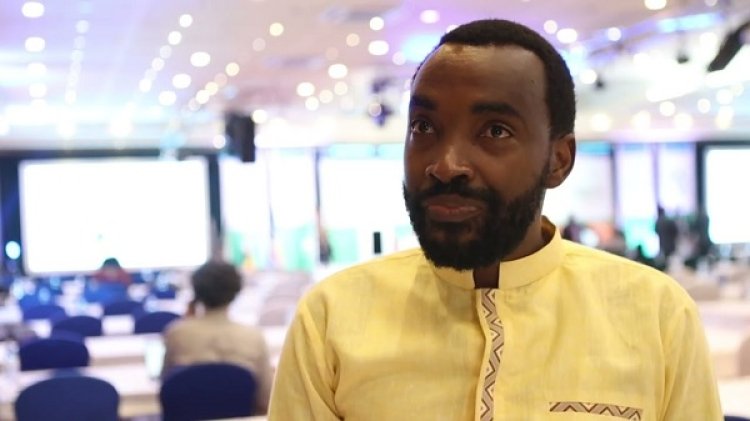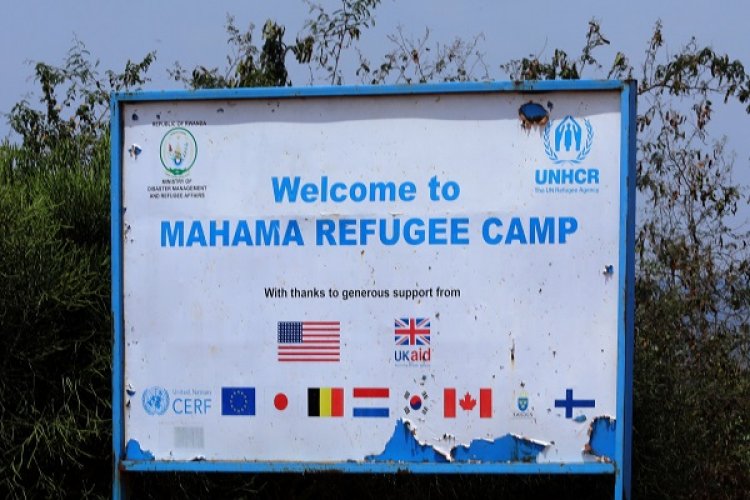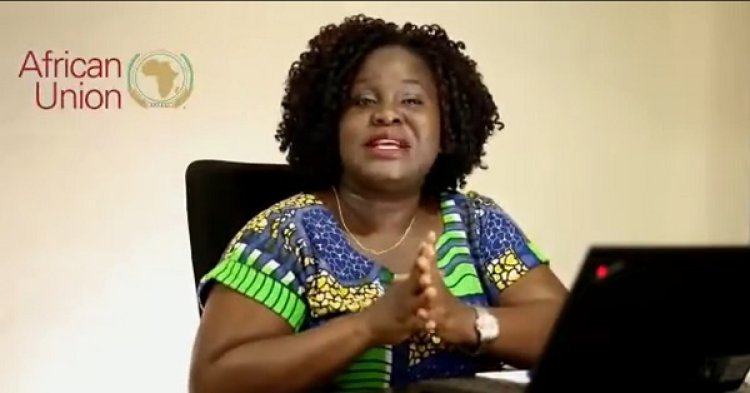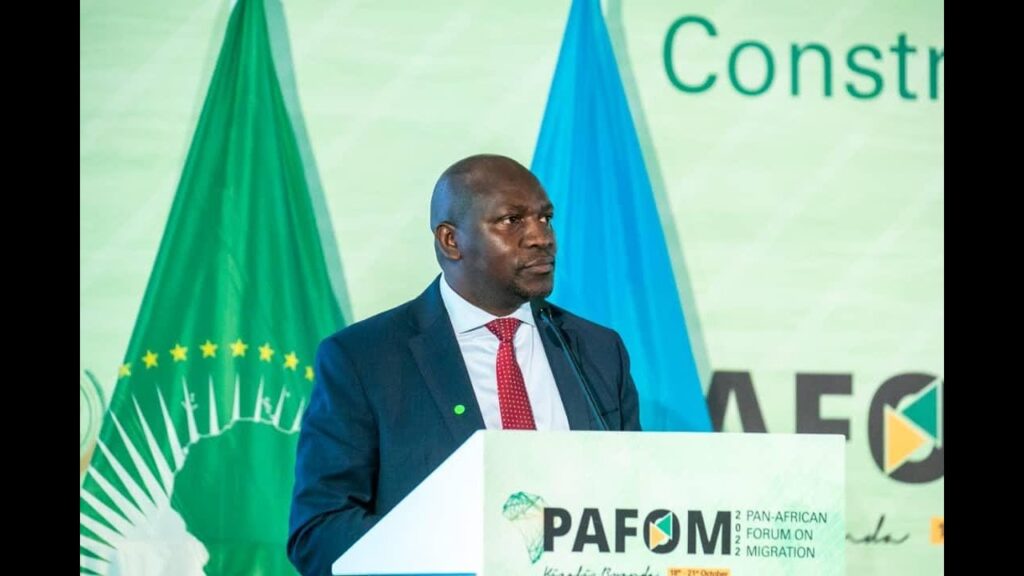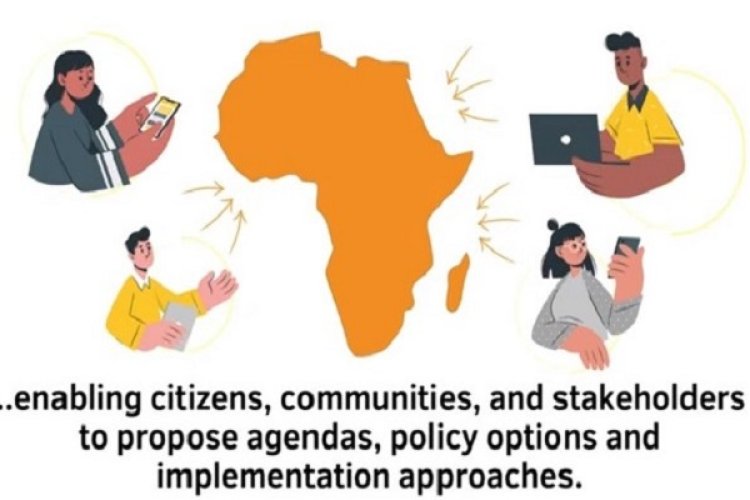Concerns surrounding discrepancies in migration governance have come to the fore as African Union (AU) member States hold discussions this week to devise ways to handle climate change-induced displacements that continue to fuel a rise in refugee numbers across the continent.
As different regions of the African continent increasingly bear the brunt of climate change, it has emerged that millions of people who are forced to flee from disasters such as drought, floods, extended heatwaves and others face additional burden from unfriendly migration policies that make it hard for them to cope.
This is particularly a concern for over 2.6 million people who were displaced by disasters across the continent in 2021, according to official data shared at the on-going Pan-African forum on migration taking place in Rwanda’s capital Kigali.
Africa hosted a total of 27.2 million internally displaced persons as at 2021, representing 46 per cent of the global total.
Also read: Non-ratification of AU treaties slows down continental flagship projects’ implementation
Ethiopia, South Sudan, DR Congo, Mozambique and Nigeria rank top on the list of African countries that host the largest number of people displaced by disasters.
However, humanitarian actors cited lack of coherence in existing migration policies as not only exposing climate refugees to restrictions and mistreatment while on the migratory routes but also the plight as regards access to protection, wellbeing and rights to reside or establish themselves at destinations.
This is partly attributed to the fact that migration policy frameworks, including global conventions largely fail to cater for people fleeing disasters and climate change in their provisions.
“There is need to incorporate climate and human mobility in legal and policy frameworks in Africa. We should not wait until more people are displaced. Governments should also consider identifying communities at risk and supporting these people on the move,” said Insa Moussa Ba Sane who is Africa region coordinator for migration and displacement project of the International Federation of Red Cross and Red Crescent Societies.
There is need to incorporate climate and human mobility in legal and policy frameworks in Africa. We should not wait until more people are displaced. Governments should also consider identifying communities at risk and supporting these people on the move.
Insa Moussa Ba Sane, Africa region coordinator for migration and displacement project, IFRC
Mr. Moussa Ba Sane also expressed concerns that designed migration policies tend to block migrants in some instances, while in others migration issues are politicized.
“Our view is that when it comes to climate change and disaster induced displacements, the vision should be different because these are improvised hazards. We should be more comprehensive, but it’s rarely the case.”
These and other issues related to migration and displacement governance in the continent are being deliberated at the four-day meeting in Kigali that brought together African Union member States, representatives of regional economic communities across the continent, migration experts and other stakeholders.
Dubbed the Pan-African forum on migration (PAFOM), it’s happening at time climate change effects continue to wreak havoc on the continent with the UN refugee agency placing people forcibly displaced by weather related event in Africa to 21.5 million on average since 2008.
This number is projected to rise to 1.2 billion by 2050.
Gaps
Needs and rights of these climate refugees are rarely catered for as both the 1951 and 1969 refugee conventions of the UN and AU respectively don’t cover environmental degradation and climate change impacts in their definitions.
The delegates at PAFOM want revision of the conventions to address the normative gap in the refugee laws.
Besides, the costs of these disasters in terms of loss of lives, property, asset and livelihoods losses, and infrastructure damages remain undercounted and uncompensated.
“The implications are that climate change is undermining Africa’s quest to achieve SDGs and Agenda 2063 which outlines Africa’s path for attaining inclusive and sustainable economic growth,” said Dr. Michael Owiso, Dean of school of development and Strategic Studies at Kenya-based Maseno University.
“This is particularly because precipitation patterns and more extreme weather are threatening human health and safety, food and water security and socio-economic development, thereby fueling more human mobility, all forms of migration and displacement in search of safer, secure environments,” he added as he presented the situational analysis of the impact of climate change on human mobility and migration on the continent.
He said that already five of 10 countries most challenged by climate change are in Africa, and climate refugee numbers will rise further in regions with low adaptive capacity.
Policy coherence
Delegates say it will require African countries to introduce climate change into continental, regional and national policy frameworks if they are to keep current migration trends in check, while equally devising locally-anchored solutions to ensure climate resilience and mitigation.
They are also urging AU member States to come up with recommendations that can serve as a guide to Africa negotiators at the upcoming UN climate negotiations (COP27) in Egypt to ensure climate refugee issues are not relegated to the background.
Also read: Road to ‘African’ COP27: Activists talk tough on climate reparations, injustices
Mr. Geoffrey Wafula, Migration Program Coordinator at the African Union Commission said the discussions at PAFOM will equally feed into AU decision making process to improve migration policy governance structures across all levels in Africa.
“This platform should help us ensure that as much as possible we counter the negative narrative we have on Africa migration governance. We all hear about the human trafficking and what’s happening to our people in the Mediterranean. Our people are dying and we have to face the reality,” he said.



